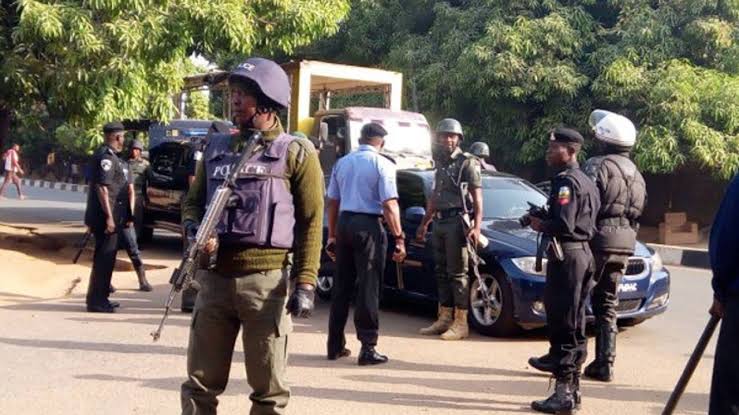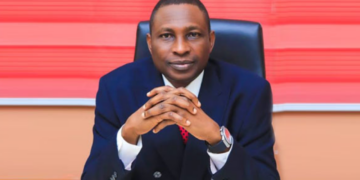For a long time, Nigerians have remained consistent in their disapproval of attaching police officers to the so called Very Important Persons (VIPs) even when the Force is obviously overstretched.
Attacks by bandits and other criminal elements on, especially, rural communities in most states across the country and media reports indicating that there are no police presence in these communities, have further exposed the fact that the nation is grossly under-policed.
Nigeria has less than 400,000 police officers and men, most of whom, though ill-equipped and poorly motivated, are expected to police the country’s over 200 million population with a land mass of 923, 768 square kilometres.
It is estimated that Nigeria has a police officer to citizen ratio of 1:540, below the United Nation’s recommended ratio of 1:450.
There is no contesting the fact that the security of people and their property is one of the most fundamental responsibilities of the police. And to effectively discharge this duty, the police must be well staffed, well trained, well equipped and adequately motivated. This ideal situation is yet to be met.
Sadly, in Nigeria, in our view, the police are short of manpower, underfunded and poorly equipped. These factors have contributed significantly to impeding their ability to perform their constitutionally assigned duty of securing lives and property within the civil society.
Despite the alarming rate of crimes in Nigeria, a large number of the Nigerian police are attached to either private businessmen, large companies, corporate organisations, government officials and or VIPs leaving an insignificant number to ensure peace and protect lives and property of the citizens.
In a widely circulated report in 2019, Dataphyte- a media research and data analytics organisation- noted that ‘revenue estimated at N135 billion, generated from attaching police officers to VIPs, banks and other corporate organizations are publicly unaccounted for’.
While monies realized from this deployment have remained largely unaccounted for, most Nigerians are worried about the skewed deployment of policemen which is tilted to favour the privileged few.
Tellingly, it is common to see well trained policemen with arms, running errands for individuals including former public office holders, to whom they have been dispatched to serve as orderlies. Specifically, there are several policemen attached to many VIPs including former governors, ex-ministers and lawmakers who are not only carrying out escort and guard duties but also, in most cases, run errands for these VIPs while most communities remained without police presence.
Interestingly, in one of his first outings following his appointment as IGP, Olukayode Egbetokun, dropped the hint about his plan to withdraw Mobile Police Force men attached to VIPs among other plausible reforms as part of measures to ensure the police take its rightful place in the country’s internal security architecture.
Egbetokun, who spoke during a meeting with Squadron leaders and Tactical Commanders in Abuja, said “We shall effect the withdrawal of Police Mobile Force (PMF) personnel from VIP escort/guard duties. While the protection of dignitaries remains paramount, it is imperative that we realign our priorities to address the escalating security challenges faced by the nation as a whole.
“By relieving the PMF of VIP escort and guard duties, we can redirect their focus and efforts toward addressing critical security concerns that affect our communities at large.
We are worried that his predecessors had made similar vow but never had the will power to have it implemented, perhaps owing to the fact that those for whom these policemen are attached and ultimately run errands, are perceived powerful persons.
It is demeaning to have police officers run errands for these so-called VIPs including some of whom their sources of wealth are highly questionable.
Since only the president, vice president, governors, local council chairmen, legislative principal officers in the states and at federal level, magistrates and judges are entitled to police protection, extending such favour to others should not be at the expense of the public.
This becomes imperative considering the fact that there have been abuses as these police escorts are made to serve as domestic servants for those they are attached to. The concern is that this scenario that plays out in public view has tended to reduce the prestige of the police as an institution creating the unfortunate impression that operatives can be bought and sold.
Recently, these policemen and women attached to these private institutions and persons have been unleashed on hapless citizens as bouncers and debt collectors.
Elsewhere, these so called VIPs as well as institutions make use of private security outfits. That should be the norm in Nigeria so as to have the police on duty as required by law which is to serve and protect the civil public. We are worried that because of the diversion of the police to sundry unofficial duties, the military have infiltrated the civil society for duties they are not trained to carry out.
IGP Egbetokun has a date with history and hence, he must demonstrate the will power to do what none of his predecessors in office could. The police as an institution is in serious need of reforms and one of the key ways for the new IGP to leave an indelible footprint in the proverbial sand of time is for him to ensure the reforms come to fruition under his stewardship.





